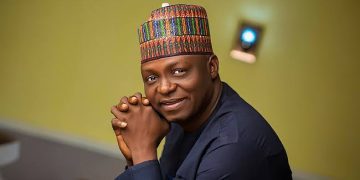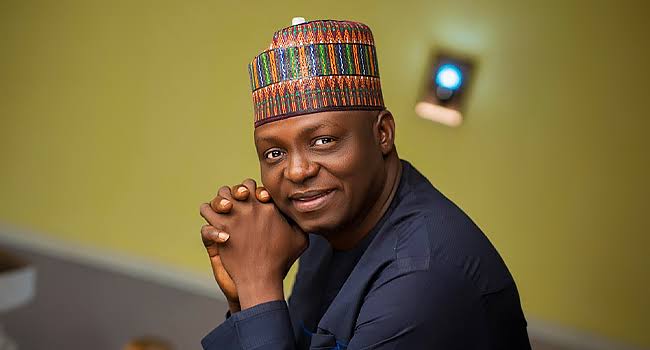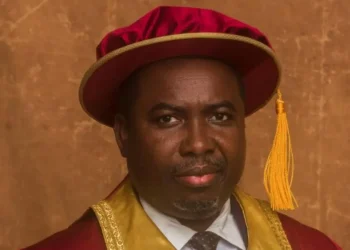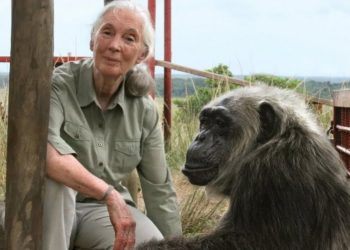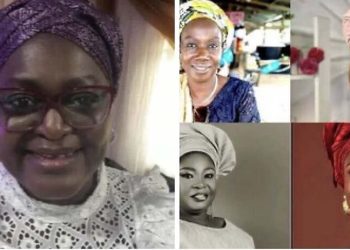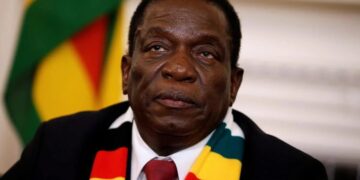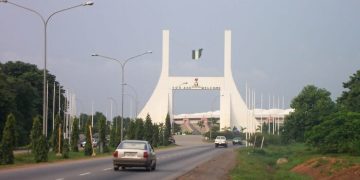Prof. Nentawe Goshwe Yilwatda exemplifies a technocratic leadership style; balancing engineering expertise, electoral reform, and humanitarian policy. His rise from academia and civil service to a national political leadership role illustrates his wide-reaching influence in Nigerian governance.
His engineering and ICT background inform a methodical, data-driven approach to governance. Whether leading a university ICT department, improving electoral processes, or now guiding his party, Yilwatda exhibits a leadership style grounded in integrity, competence, and a commitment to uplifting communities.
Nentawe Goshwe Yilwatda Biography
Professor Nentawe Goshwe Yilwatda was born on August 8, 1968, in Dungung village of Kanke Local Government Area in Plateau State. He is the son of the late Reverend Toma Yilwatda and was raised in a Christian household. He attended Boys’ Secondary School, Gindiri, from 1981 to 1986. Yilwatda went on to study Electrical and Electronic Engineering at the Federal University of Agriculture, Makurdi (FUNAAB), earning a Bachelor of Engineering degree in 1992.
He subsequently obtained a Master of Engineering from Abubakar Tafawa Balewa University in Bauchi and a Ph.D. in Electronic and Computer Engineering from the University of Nigeria, Nsukka . These formative years in Plateau shaped his technical foundation and commitment to excellence.
Academic and Professional Career
After completing his education, Yilwatda embarked on a long academic career at FUNAAB. Over more than twenty-six years he rose to become a full Professor of Electrical and Electronic Engineering. He was appointed the university’s first Director of Information and Communication Technology (ICT), a role he held for twelve years. In that capacity he led the development and execution of a ten-year ICT strategic plan, modernizing many of the university’s administrative and academic processes.
Under his leadership, he earned multiple accolades, including Best Staff of the Year and Best Director of the Year at the university. His work earned him a reputation as a transformative ICT leader in academia. Beyond campus, Prof. Yilwatda built a strong profile as an ICT strategist and consultant. He contributed his expertise to major national projects. Notably, he served as a project consultant on Nigeria’s first Integrated Financial Management Information System (IFMIS), a networked accounting system implemented across key federal agencies including the Ministry of Finance and the Central Bank.
He also helped implement the World Bank–funded STEP-B project by developing the Nigeria Education and Research Network (NgREN), which established a unified ICT network for universities across the country. In addition, he received specialized training in electronic governance (UNU Macau) and has been invited as a consultant by international organizations. This blend of roles; educator, engineer, and ICT advisor highlights his standing as a thought leader in technology-driven development.
Electoral Commission Service (2017-2021)
In July 2017, President Muhammadu Buhari appointed Prof. Yilwatda as the Resident Electoral Commissioner (REC) for Benue State. In this INEC role, he applied his administrative skill and technical expertise to improve the conduct of elections. During his tenure (2017–2021), he spearheaded reforms to make voting more inclusive and transparent.
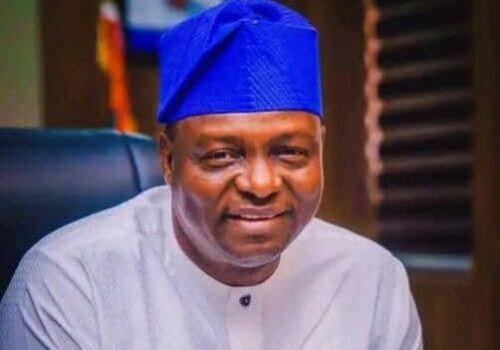
For example, he introduced voting frameworks and policies that enabled internally displaced persons (IDPs) and people living with disabilities to participate fully in elections. He also piloted electronic voting systems in Benue State, helping to improve the efficiency and accountability of the process. These initiatives won praise for reducing disenfranchisement and modernizing the electoral process. Yilwatda served as Benue REC until December 2021, when he resigned the commission to pursue elective office.
Transition to Politics and Plateau Governorship Bid (2023)
After leaving INEC, Nentawe Yilwatda formally entered partisan politics. In the 2023 general elections he was chosen as the All Progressives Congress (APC) gubernatorial candidate for Plateau State. Campaigning as a technocrat with a record of service, he emphasized issues such as youth empowerment, technology-driven development, and poverty reduction. The gubernatorial race was closely contested: Yilwatda narrowly lost to the Peoples Democratic Party (PDP) candidate, Caleb Mutfwang. He initially challenged the result in court but ultimately accepted the judgment. His conduct during the dispute drew attention, as he publicly urged the party to respect the process and maintain peace in the state.
At the same time, Prof. Yilwatda played a key coordinating role in national campaigns. He served as the State Coordinator for President Bola Tinubu’s campaign organization in Plateau State during the 2023 elections, mobilizing grassroots support for the APC ticket. In this capacity he leveraged his extensive professional and community networks across the state. Throughout this period he maintained a strong alliance with Simon Lalong, the outgoing APC governor of Plateau. Governor Lalong publicly endorsed Yilwatda’s candidacy and later supported his appointment to the federal cabinet. These partnerships and his campaign experience deepened Yilwatda’s political credentials within the APC.
Minister of Humanitarian Affairs and Poverty Reduction (2024-Present)
In October 2024, President Tinubu appointed Professor Yilwatda as the Minister of Humanitarian Affairs, Disaster Management and Social Development. This newly created ministry consolidated social welfare, disaster response, and poverty-alleviation functions under one roof. As minister, Yilwatda is charged with coordinating the federal government’s humanitarian relief and poverty-reduction programs. He oversees agencies responsible for emergency management, internally displaced persons, and social support initiatives.
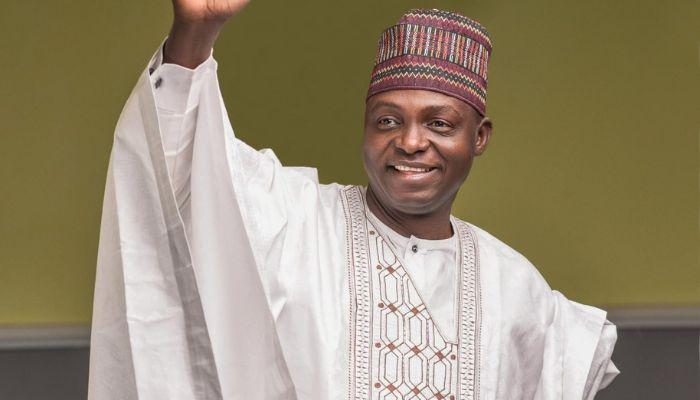
From the start of his tenure, Minister Yilwatda has emphasized technology-driven solutions in humanitarian work. He has digitized Nigeria’s social safety-net systems and introduced more efficient cash-transfer platforms to reach the poor and vulnerable. For example, under his leadership the ministry advanced the National Social Safety Net Coordinating Office (NASSCO) initiatives to better target assistance using data analytics.
In addition to running the ministry, Yilwatda was appointed to key national policy bodies. He became a member of the President’s Economic Management Team, contributing to strategies on social investment and poverty reduction. He was also named Chairman of the Euro-African Dialogue on Migration and Development, reflecting his engagement in international humanitarian issues. These roles demonstrate how his background in technology and governance continues to inform his approach to public service.
APC National Chairman (July 2025-Present)
On July 24, 2025, Professor Nentawe Yilwatda was elected National Chairman of the All Progressives Congress (APC). His election was held at the party’s National Executive Committee meeting in Abuja, where he was chosen unanimously by party leaders. He filled the vacancy left by the resignation of Senator Abdullahi Umar Ganduje. Reports indicate that his emergence followed a consensus deal engineered by President Tinubu and key state governors, highlighting confidence in Yilwatda’s leadership.
Yilwatda’s ascension to the chairmanship came at a critical time for the ruling party. As national chairman, he is responsible for setting strategic direction and administering the APC. Party insiders describe him as a calm, behind-the-scenes operator and a strategic thinker. Analysts note that he is expected to focus on reconciling rival factions within the APC, rebuilding the party’s grassroots structure, and preparing for upcoming elections.
In particular, his leadership will be tested by the off-cycle gubernatorial elections in Osun and Anambra states, as well as by laying groundwork for the 2027 general elections. Stakeholders believe his technocratic and measured style will help stabilize the party’s internal divisions and reconnect with its base.
Personal Life, Values, and Leadership
Professor Yilwatda is known for integrity and calm. He is married to Dr. Martina Yilwatda Goshwe, and the couple has a son named Beji. The family resides in Jos, Plateau State. A devoted Christian (and the son of a reverend), Yilwatda’s faith is often cited as influencing his character. Colleagues and media profiles note that “his loyalty to the party and calm demeanour earned him widespread respect”.
Yilwatda’s leadership philosophy centers on service, accountability, and innovation. He emphasizes the importance of results over rhetoric, often saying that citizens should judge leaders by what they do. He has been described as “a bridge between technology and governance,” reflecting his belief that modern solutions should be applied to public problems. Underlying all his roles is a commitment to helping the most vulnerable: he championed voting rights for displaced and disabled Nigerians and now directs resources to fight poverty and support the needy.
His appointment as minister was hailed as “a testament to his lifelong commitment to service, his passion for leveraging technology for good governance, and his unwavering dedication to uplifting the most vulnerable in society”.
Yilwatda’s professional accomplishments have earned him recognition. In academia he won awards for excellence for example, he was named “Best Staff of the Year” at FUNAAB and he was listed among Africa’s leading figures in the digital economy.
